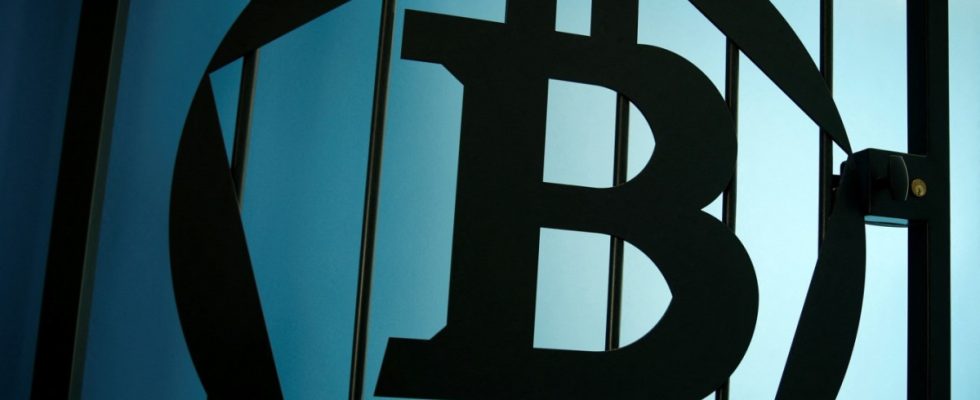Although the word “blockchain” was mentioned for the first time in the current coalition agreement, you only hear the Federal Minister of Economics talking about it in exceptional cases. Robert Habeck has other worries, from heating systems to Russia sanctions. In search of impulses for growth, Habeck’s ministry is now presenting an industry survey for the first time.
The results, which are available exclusively to the SZ, show that although a large part of blockchain technology is being developed in Germany, it is an absolute niche.
Blockchains are an accounting system distributed across many computers around the world using special software. It is intended to provide evidence of forgery-proof information and replace central institutions such as banks. The best-known blockchain is the one on which all transactions of the cryptocurrency Bitcoin are recorded.
The W3now study, whose name plays on the term “Web3” – for a new, decentralized Internet – ran for over 18 months. Thanks to strong encryption and blockchains, it should work without the central systems and actors established in banks, social media and cloud services. The majority of experts from IT and consulting companies took part in the study. Some came from financial firms.
A good part of the technology was developed in Germany
In addition to existing areas of application in the financial and investment business and online identity verification, respondents particularly saw the creation of trustworthy AI systems as a growth area for blockchain applications.
The study is intended to initiate further legislation and funding opportunities during this legislative period. It was commissioned at the height of the euphoria surrounding cryptocurrencies in 2022. This was followed by a currency price crash and fraud scandals that have damaged the scene’s reputation. Critics see the idea of “decentralized” currencies as little more than a new speculation scam driven online by investors.
The study for Habeck now comes in the middle of a renewed upswing. Mainly thanks to the price increases of the well-known cryptocurrencies Bitcoin and Ether, the market value has doubled to more than two trillion US dollars in twelve months.
The study was carried out for Habeck by the Hanseatic Blockchain Institute association. “The next wave of digitalization will be characterized by decentralized structures,” says board member Moritz Schildt. “Our goal must be for Germany to be at the forefront of a digital revolution for the first time and not be left behind.”
A good portion of the technology was developed in Germany, but did not receive the necessary support here. Many of the Bitcoin for the Lightning transfer system are currently being provided from Germany. The country is therefore a pillar of this attempt to establish Bitcoin as a means of payment. The focus is on Gunzenhausen, Frankfurt and Saarbrücken.
The dream of building a payment system without central or commercial banks, with a currency that regulates itself through software, has been floating around the internet for a long time. The fact that he still has his supporters was evident these days on the other side of the world, in Denver. Every year, the EthDenver industry conference takes place there, in the fully digitalized state of Colorado, in a real rodeo arena complete with the smell of cows.
Telekom is also involved
The picture in Denver corresponds to the W3now result. The industry wants to take care of its technology without government interference. It relies exclusively on decentralized Internet technology, which can be used by all participants according to fixed rules. This is intended to make the systems transparent. This is not just about money, but also about the belief in what and how money should be.
“I grew up in Ukraine and the failure of the banks, the hyperinflation, that’s something I grew up with,” Illia Polosukhin said at EthDenver. His blockchain is managed by a non-profit organization based in Switzerland, which now also pays him for it. The former Google developer says that centralized systems have only led to monopolies of tech companies “that are able to exploit their market position by charging high fees in the app store, heavily advertising products and even the way manipulate how we perceive products”.
The blockchain Celo, in which Deutsche Telekom, together with the legendary tech investors Andreessen Horowitz and Twitter founder Jack Dorsey, invested some venture capital in 2021, also has a stand in Denver. Those in the know know: Telekom now operates part of the infrastructure for this Celo Network. At least theoretically, Telekom would already be on the market before the banks thanks to MMI technology – a type of SMS that allows you to carry out certain functions on your cell phone. If only he would take off.
But the mass market for blockchain remains blocked by strict regulations, even in the USA. The US government still lacks a uniform directive like the European MiCA directive. The EU at least regulates what providers of blockchain products must disclose.
Celo relies on cooperation with African banks. On the continent, people are more accepting of mobile solutions anyway. Paying with your cell phone was possible in many places long before the payment systems from Apple and Google became established in rich countries.
“In Germany there needs to be a stronger ecosystem consisting of venture capital (VCs), networks and places for meetings and knowledge exchange,” says André Kanya, partner at the specialized fund W3Fund from Berlin. “In the USA, however, this has been going on for a long time, as venture capitalists and start-ups have been fueling the ecosystem there for decades.”
Meanwhile, the typical size of one of the few German Web3 companies is between one and five full-time employees, the study shows. Even in large companies, there are hardly ever more than a dozen specialists working on Web3. And something else is missing: women are clearly underrepresented in the sector.

